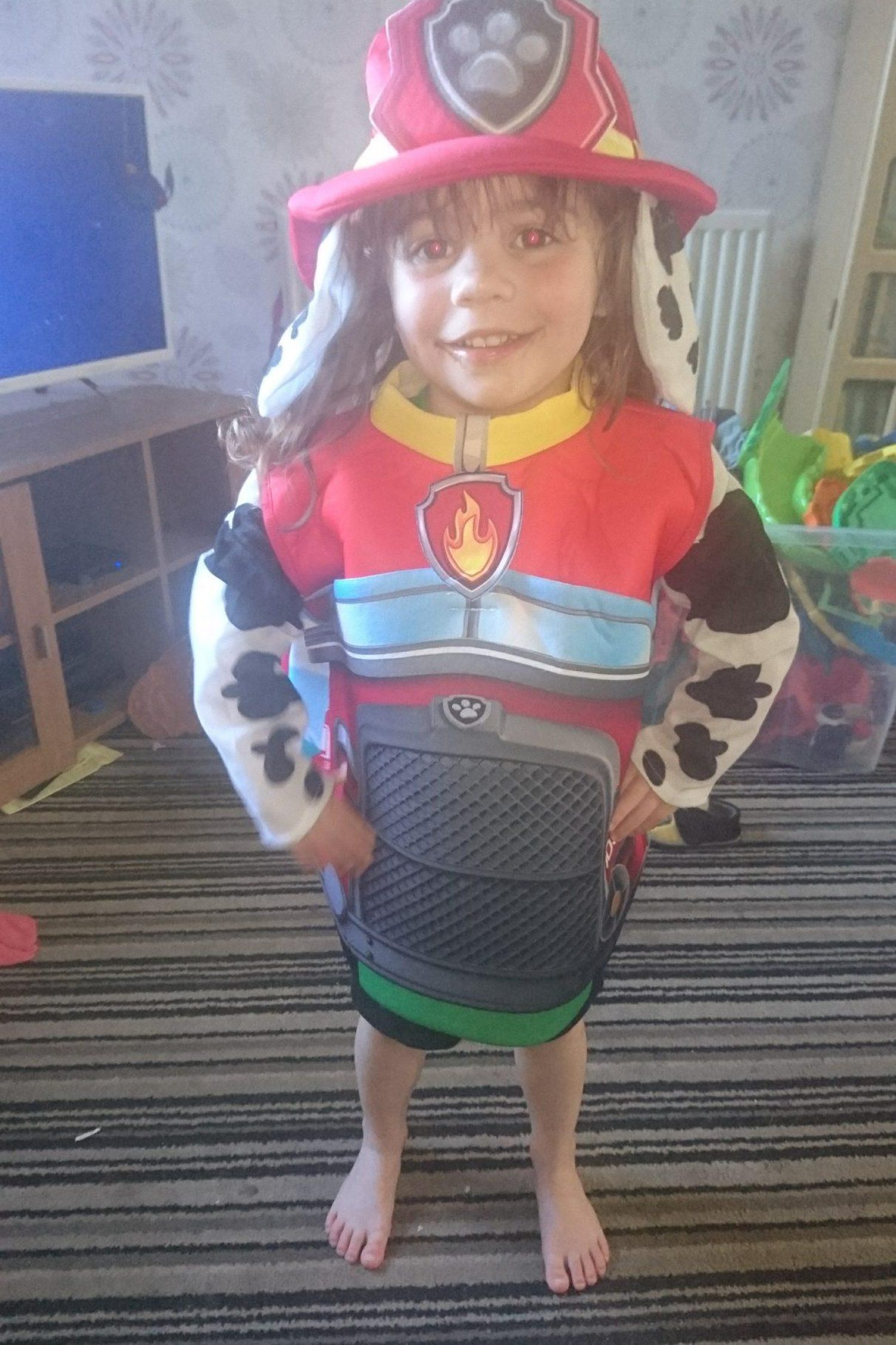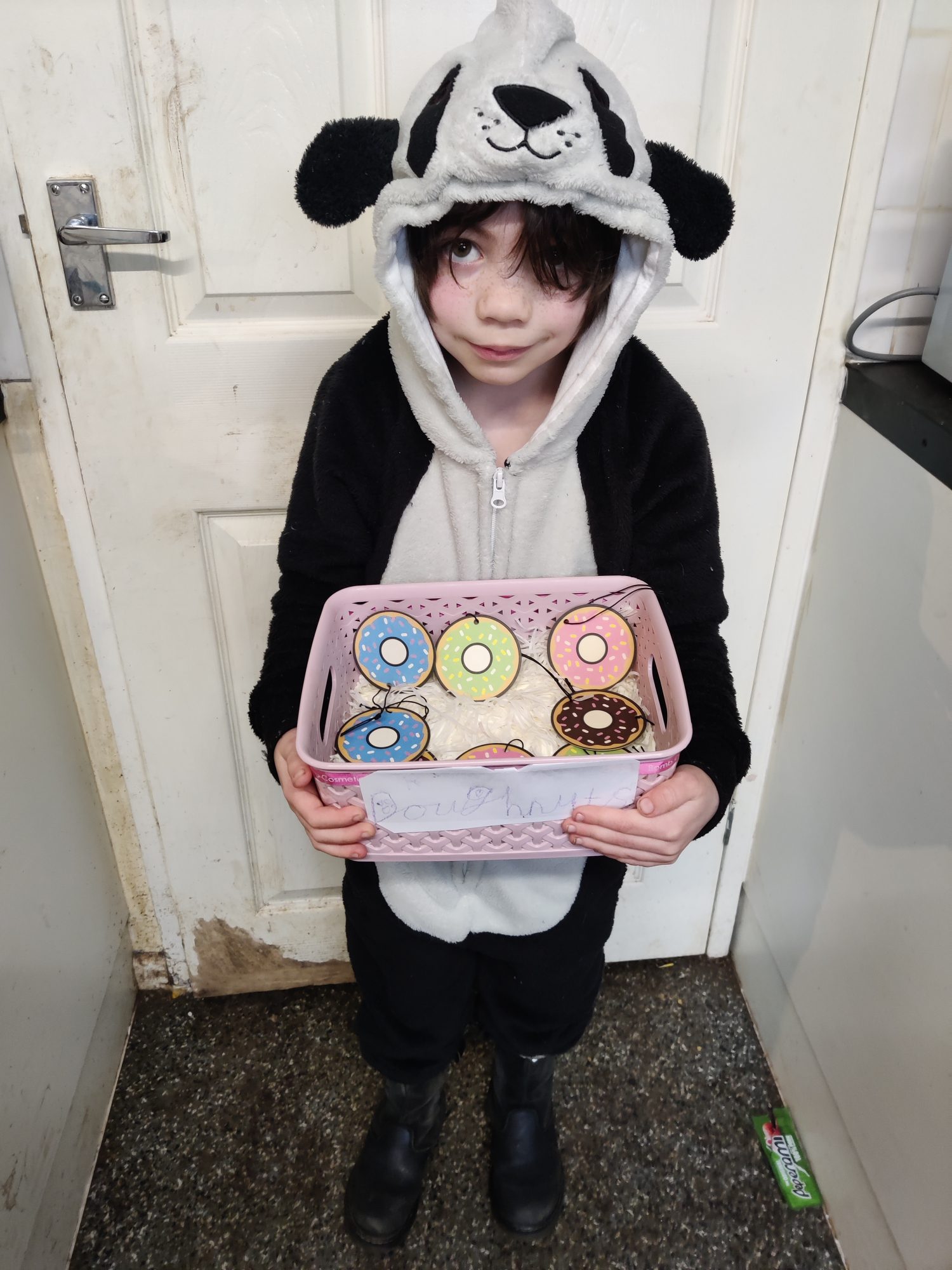Davina and Bayden's story
Davina and her child Bayden took part in our research into a strengths and support needs toolkit.
Davina and her child Bayden, 11, from Hampshire, participated in our proof of concept research into a strength and support needs toolkit. Davina shares Bayden’s autism diagnosis story, and how the strengths and needs toolkit helped Davina remind Bayden of their strengths.
Bayden's autism assessment journey
I knew something was different about Bayden from as early as two. When they started school, they wouldn’t play with the other kids. They would wander around alone, putting things back in their place. Within a few weeks, the teachers agreed Bayden should be referred for an autism assessment.
We were sent to CAMHS, who referred her to an NHS-funded private assessment. But it was online, which wouldn’t work for Bayden. As I predicted, Bayden was away with the fairies; headphones on, doing whatever they wanted to do. When they sent us the report, it was inconclusive, as Bayden wouldn't talk to the assessors.
Bayden’s CAMHS worker was amazing; she really pushed for trying another assessment for Bayden. We got put back on the waiting list when Bayden was eight. We were still waiting two years later. In the end, we went private. Eventually, an assessor gave Bayden an autism diagnosis with a Pathalogical Demand Avoidance (PDA) profile.

A young Bayden wearing fancy dress
My child’s autism diagnosis journey took forever. It shouldn't take that long. Unless you can afford to go private, the wait is so long, so many people are going without support. It’s frustrating and it’s wrong.
Lack of support

A young Bayden
The school staff said they would step up and put things in place. But it didn't happen. Bayden had no help in school whatsoever. They were never in the classroom, and no one cared. Bayden just wandered around the school during class time, doing whatever they wanted.
The school never acknowledged that Bayden was SEND. The headteacher told me Bayden was just naughty. We were told, 'You’re just doing it for attention. We're not going to help you until your attitude changes.' Well, this is how my child thinks. That's not going to change.
School was hugely damaging to Bayden’s mental health, so now Bayden stays at home with me.
Strengths and needs profile
I came across Autistica’s strengths and needs research project after searching for more information about autism online. After an initial call, we were selected for the research. The research looked into a tool that creates a profile showing someone’s strengths and needs.
The team sent us the strengths and needs profiles paperwork. I answered questions in lots of areas about how easy or difficult Bayden found certain things. Taking the time to fill it in was really good. It made me stop, think and look harder at my child.
After completing the toolkit, we got an in-depth profile that gives us a picture of Bayden by listing what they are good at and the things they find hard.
There were also grey area answers where Bayden can do some of it, but can't do all of it, or can sometimes do it, but sometimes we can't. That gave me ideas of what we could work on together, the areas where Bayden could move from OK to 'good' with a bit more focus.
There were also some areas where we’ll never be where we should be. And that's fine, because we've got other areas where Bayden is amazing.
The toolkit gives me something to go to my child when they are like: "Oh, I’m stupid". I can say, "Well, actually, you’re not. Look, here it is. This is how your brain works; all these things that you can do that your friends can’t do."
How the toolkit has helped, and how it could have helped in the past.
The toolkit gives me something to go to my child when they are like: 'Oh, I’m stupid'. I can say, 'Well, actually, you’re not. Look, here it is. This is how your brain works; all these things that you can do that your friends can’t do.' Bayden notices things that their friends don’t. They notice patterns in clouds, the different shades of green in a leaf, and can notice noises like owl sounds or foxes at night. It's random things like that that they see that other people can't.
Bayden’s writing isn’t great. At school, they were given a scribe to write on their behalf. But when the headteacher left, that support was taken away. Bayden lost their scribe. They lost their talk button. These profiles would have been really helpful, because when the headteacher left, we could have taken the profile to the new teacher and continued that support.
We were taking part in the research while we were getting ready for Bayden’s autism assessment. It was perfect timing. I rang the assessor, telling them about the research, and asked if they would like to see Bayden’s profile, which I sent to them with Bayden's paperwork. The assessors said they found it incredibly helpful because it gave them a much better perspective of my child.
Final thoughts
Autistic people are more than their needs; they are human beings. They need to be treated like human beings. Just because my child sees things differently, they don’t need to change. It's other people’s opinions that need to change.
I think the Toolkit should be rolled out everywhere. I like that it focuses on strengths, too. It will help more autistic people realise they are clever in different areas than they realise. Autistic people are more than their needs; they are human beings. They need to be treated like human beings. Just because my child sees things differently, they don’t need to change. It's other people’s opinions that need to change.